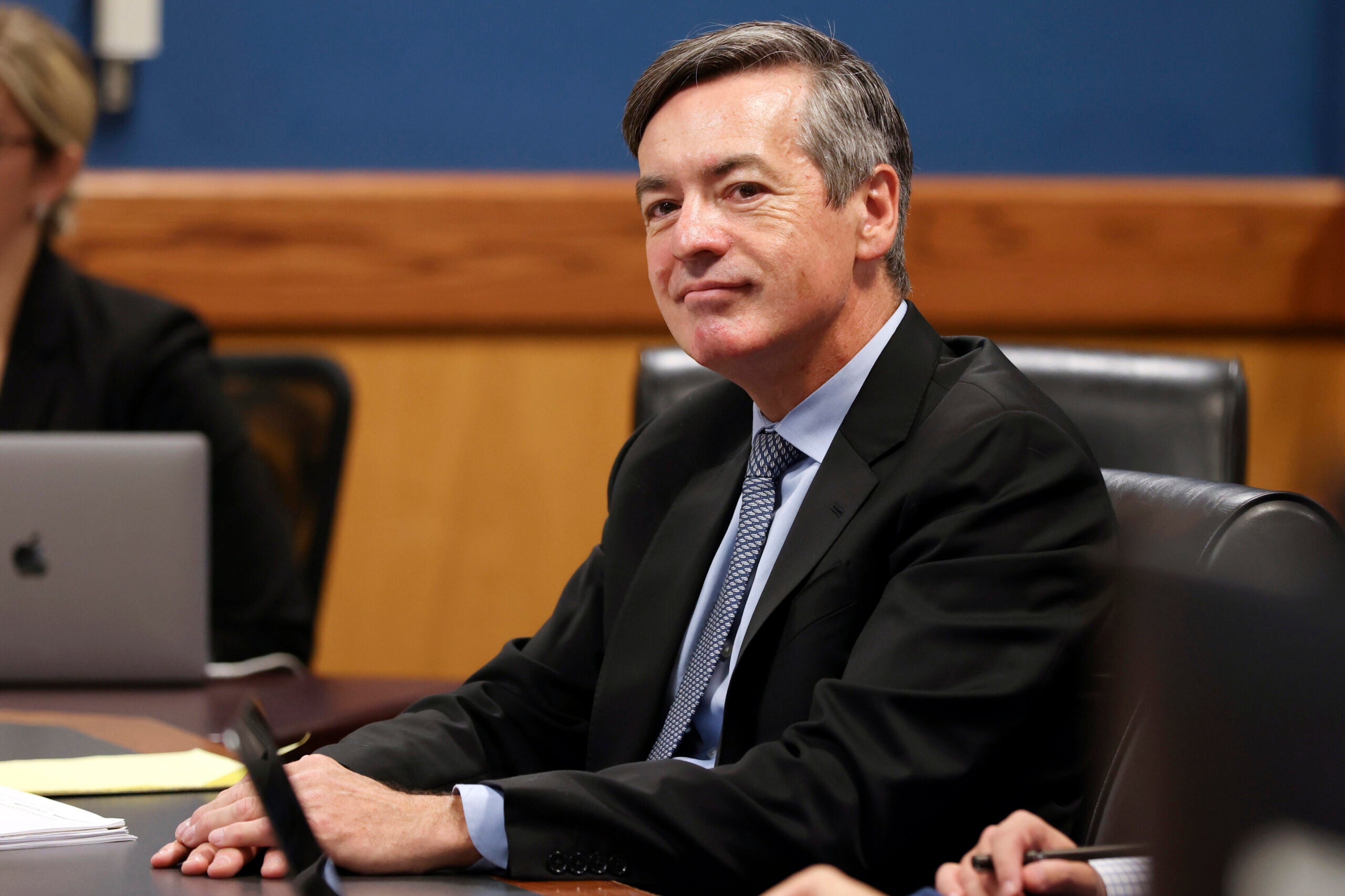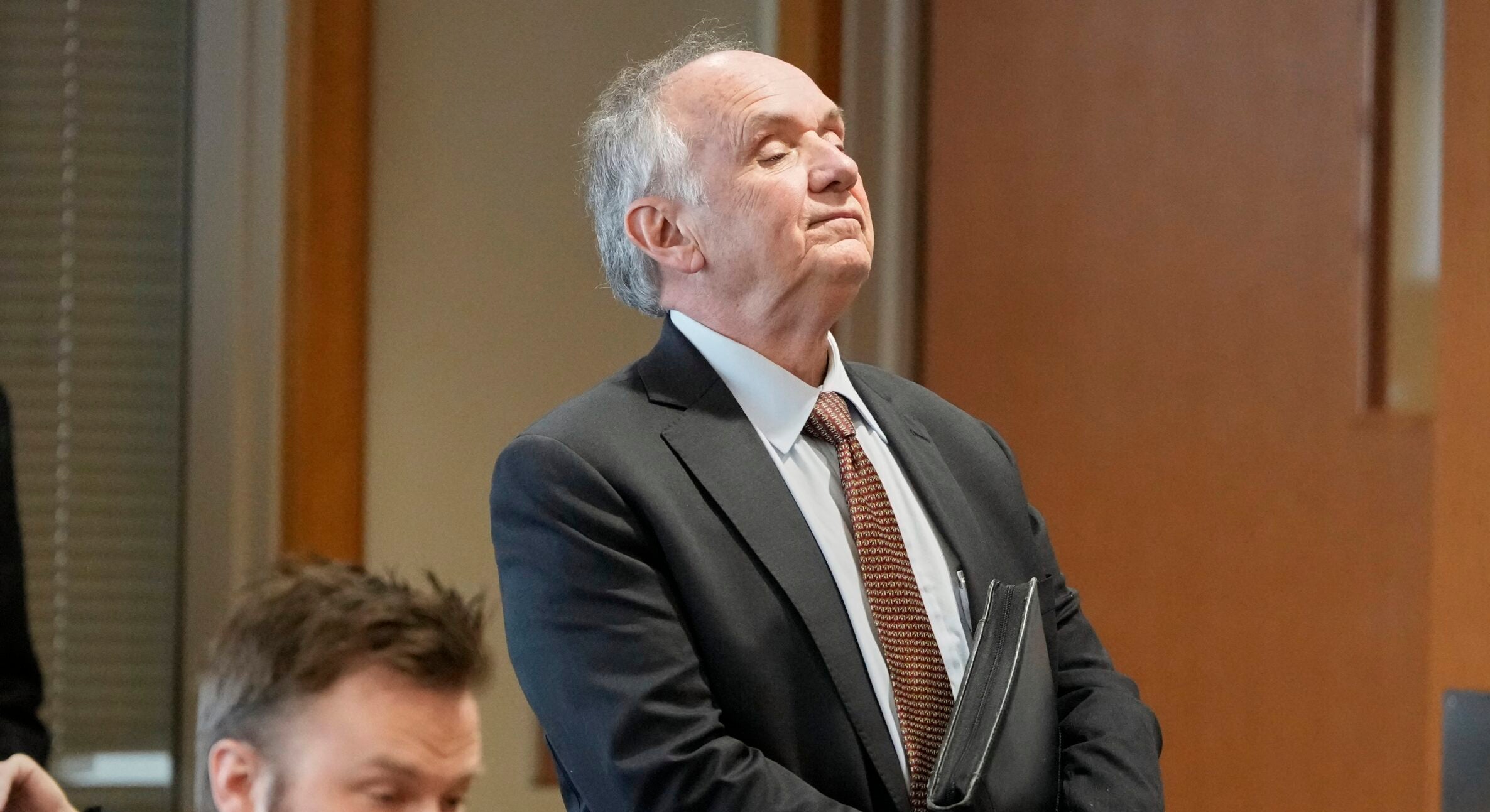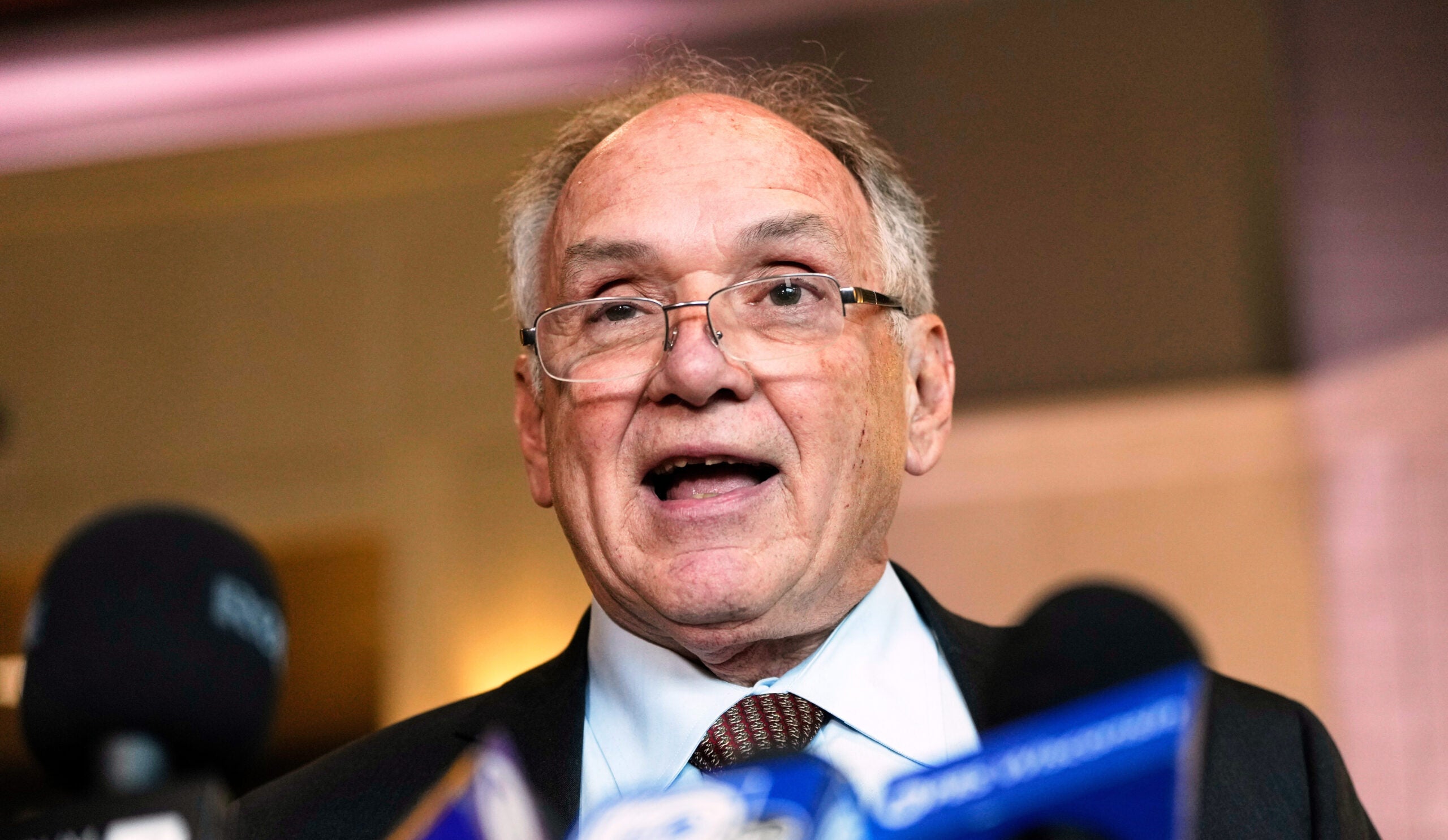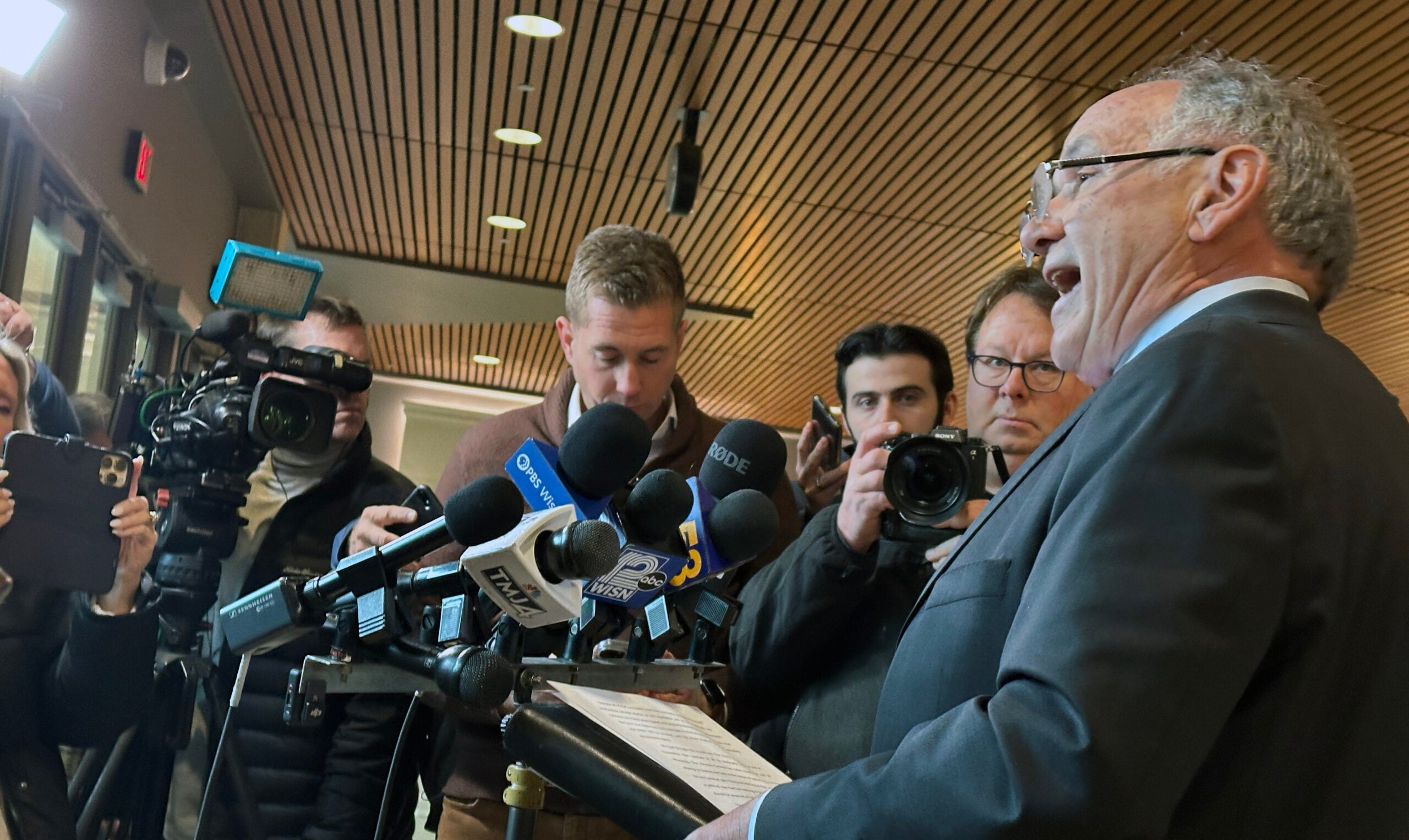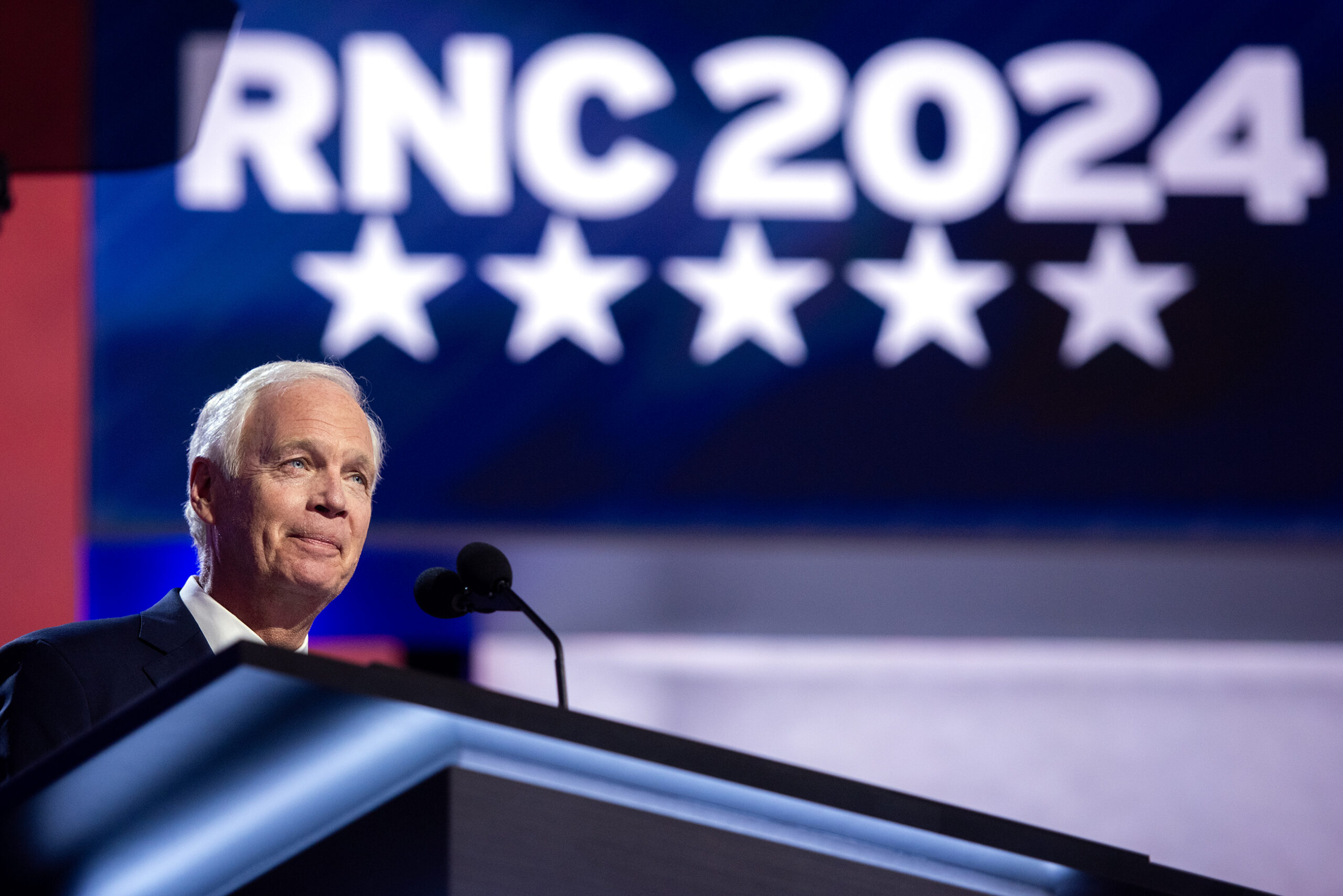Wisconsin’s attorney general filed felony charges Tuesday against three people in connection with a 2020 scheme to submit a slate of false electors in support of former President Donald Trump.
Attorneys Kenneth Chesebro and Jim Troupis, as well as political operative Michael Roman, each face one count of felony forgery for their roles in the scheme, which involved signing official-looking documentation claiming that Trump won Wisconsin in 2020, even though he had narrowly lost.
The Class H felony charges were filed Tuesday morning by Attorney General Josh Kaul in Dane County Circuit Court. They use a state law suggesting that Chesebro, Troupis and Roman acted knowingly when they worked to collect and submit the false elector documentation.
News with a little more humanity
WPR’s “Wisconsin Today” newsletter keeps you connected to the state you love without feeling overwhelmed. No paywall. No agenda. No corporate filter.
At a press conference on the steps of the Wisconsin State Capitol in Madison on Tuesday, Kaul said the investigation into the false elector scheme is “ongoing.”
“This is an investigation into alleged criminal conduct, and we’re gonna follow the facts wherever they lead,” he said. “The investigation is not focused on any particular person, but on those facts, and what information we can gather, and then making a determination based on the law.”
In a press release accompanying the announced charges, the Department of Justice said the charges are “punishable by a fine not to exceed $10,000 or imprisonment not to exceed six years, or both.”
“The criminal complaint in this case alleges that the defendants were part of a conspiracy to present a certificate of purported electoral votes from individuals who were not Wisconsin’s duly appointed electors,” Kaul said in the release.
Chesebro is considered the architect of the plot, which extended to multiple swing states Trump had lost, in the days following the 2020 presidential election. In a memo he sent to Troupis, who was then the lead attorney for the Trump campaign in Wisconsin, Chesebro laid out a strategy to use “alternate” electors to contest the election results.
Chesebro and Troupis recently settled a civil lawsuit related to their actions in Wisconsin. As part of that agreement, the two men admitted no “liability or culpability,” but said they would not submit false electors in the future.
Roman, the third person charged, is a former Trump campaign aide who was also indicted in Trump’s federal election interference case in Georgia.
The three men are due in court on Sept. 19, according to public court documents.

The announcement of the charges come five days after Trump was found guilty in New York criminal court of falsifying business records in a hush money payout during his 2016 campaign. Republican Sen. Ron Johnson — who reportedly called for Wisconsin’s GOP-held Legislature, not voters, to determine the 2020 outcome — posted on X linking the two events.
“Now Democrats are weaponizing Wisconsin’s judiciary,” he wrote. “Apparently conservative lawyers advising clients is illegal under Democrat tyranny.”
At Tuesday’s press conference, Kaul said the timing of this year’s presidential election had no bearing on the timing of the criminal charges.
“In this case, I will note that the defendants are not themselves people who are candidates for any office,” he said. “And the decisions we make are not based on external factors … they’re based on our judgment about how we can most effectively pursue the interest of justice in this case.”
Kaul declined to say whether additional people could be charged, or whether immunity deals are on the table.
Gov. Tony Evers responded to the news Tuesday with a one-word statement: “Good.”
The three defendants could not be immediately reached for comment.
The false electors scheme launched from Wisconsin
In addition to Wisconsin, charges related to the false elector schemes have also been filed in Arizona, Nevada, Michigan and Georgia.
Roman has been charged in both Arizona and Georgia, and Chesebro has pleaded guilty to charges in Georgia.
The plot allegedly was born in Wisconsin, however, with Troupis and Chesebro using Wisconsin as a testing ground for a strategy that expanded to other battleground states. And the Wisconsin criminal complaint reveals communications between the two that contradicts the argument made by some participants in Wisconsin’s false elector scheme that they were merely preserving Trump’s legal options if courts acted in his favor.
In one email, Chesebro gives Troupis his thoughts on “how leverage might be exerted” on Congress on Jan. 6, 2021 in connection with “having electors sent in alternate slates of votes.”
“Court challenges pending on Jan. 6 really not necessary,” Chesebro wrote in a Dec. 8, 2020 email to Chesebro, according to the complaint.
“This is an excellent summary of the end game. Thank you,” Troupis replied.
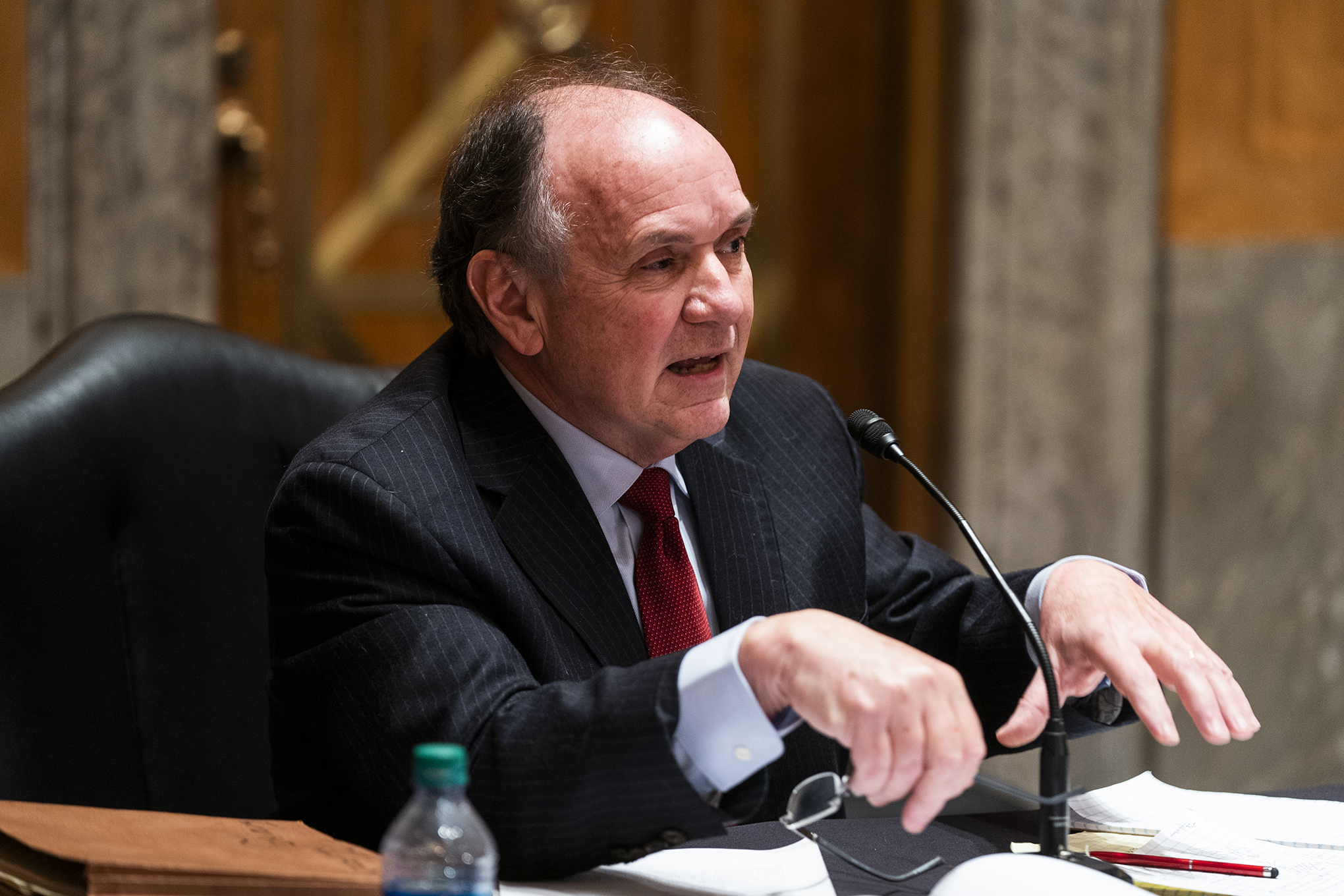
Chesebro outlined a novel legal strategy to Troupis
In a memo first published by the New York Times, Chesebro laid out the false electors strategy to Troupis. Dated Nov. 18, 2020, the document was sent the day after Wisconsin’s county clerks finished their canvas of the votes, showing President Joe Biden had defeated Trump by nearly 21,000 votes, even after a recount of Milwaukee and Dane Counties.
Chesebro argued that the Trump campaign should still proceed with Constitutionally-mandated deadlines for certifying an election, in case Biden’s votes were disqualified.
Chesebro was later in the room at the state Capitol in Madison on December 14 when the 10 Wisconsin Republicans signed paperwork suggesting that Trump had indeed won Wisconsin — shortly before the true Democratic electors were signing real paperwork in support of Biden’s victory.
That same day, the Wisconsin Supreme Court had rejected a lawsuit — filed by Troupis, then the lead Wisconsin attorney for Trump’s campaign — asking for Biden’s victory in the state to be overturned.
And on that day, similar moves were taking place in other battleground states, allegedly at Chesebro and other attorneys’ behests. The Wisconsin false documents were later submitted to the U.S. Senate and the National Archives on Republican Party of Wisconsin letterhead.
State charges come after a previously settled civil lawsuit
The Wisconsin Republicans who signed their names to documentation include sitting Wisconsin Elections Commissioner Bob Spindell and former Wisconsin GOP Chair Andrew Hitt.
Hitt has since argued the group was “tricked” into thinking they were providing a contingency for the Republican candidate in the event that legal challenges went through. He said they were following the advice of lawyers when they met on Dec. 14, 2020 — the constitutionally mandated day for state electors to cast ballots for the winner in a presidential race — and did not know that they were part of a broader scheme.
“It’s clear now that those documents were used on Jan. 6 to, at the very least, help create the chaos of that day,” he said in a December interview with WISN-TV.
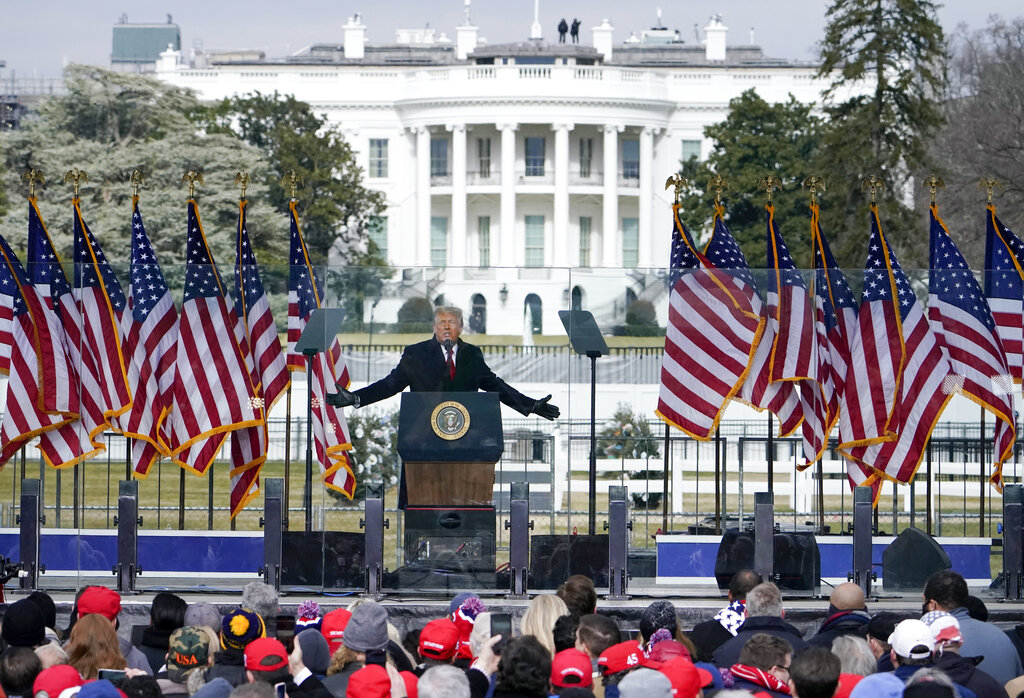
In December, the 10 Wisconsin Republicans who signed onto the false elector documents settled a civil lawsuit, which alleged the plot helped pave the way to the deadly Jan. 6 riots at the U.S. Capitol. The false electors admitted no wrongdoing but said their actions were “part of an attempt to improperly overturn the 2020 presidential election results.”
Defendants in that case have said they were attempting to preserve Trump’s legal options as court cases challenging the election results made their way through the courts. Dozens of cases focused on the presidential election in both state and federal courts were either tossed or resolved in favor of Biden’s victory in the contested battleground states.
A spokesperson for the Trump campaign did not immediately respond to WPR’s request for comment.
Who are the Trump allies being charged in Wisconsin?
The three defendants could not be immediately reached for comment. Two of them — Troupis and Chesebro — have extensive ties in Wisconsin, while Roman is a longtime conservative opposition researcher and Philadelphia resident.
Troupis was the lead Wisconsin attorney for Trump’s campaign after his 2020 loss to Biden and oversaw Trump’s partial recount in Dane and Milwaukee Counties. Those recounts reaffirmed Biden’s victory
Previously, Troupis served as a Dane County Circuit Court judge, and was a go-to expert for Republicans on redistricting as they drew the legislative map in 2011 that cemented GOP power in the state for over a decade. He also frequently advised the Republican Party of Wisconsin. A spokesperson for the state GOP declined comment.
Troupis also serves on the Wisconsin Judicial Conduct Advisory Committee, a state panel that renders advisory opinions and advice for judges. He was reappointed to that role in March 2023, with the support of the then-conservative majority on the Wisconsin Supreme Court. Liberal justices voted against the reappointment at the time but did not write a formal dissent.
Calls to a number associated with Troupis’ law practice went unanswered.
Chesebro was brought into the fold by Troupis, according to a trove of documents released during the civil lawsuit resolved earlier this year. A Wisconsin native, Chesebro emailed Troupis on Nov. 8, 2020 — just days after the election — to suggest that they could create a “cloud of confusion” that would remove Wisconsin’s votes, and potentially votes from Michigan and Pennsylvania, from consideration — thus “throw(ing) the election to the (U.S.) House.”
He also suggested the GOP-held state Legislature could simply call the election for Trump, even after the state’s nonpartisan Legislative Reference Bureau stated that would not be a legal option.
Chesebro also helped provide materials for the false electors schemes, using photos of 2016 election documents to create documents for false elector meetings across the country, and sharing a fill-in-the-blank statement for Republican parties in other states.
Chesebro, whose given address in the court filings is in Puerto Rico, was not able to be reached for comment.
Roman allegedly helped bring the Wisconsin paperwork into the U.S. Capitol on Jan. 6, 2021, according to the criminal complaint. A defendant in a federal case in Georgia about Trump’s alleged election interference there, he first identified a romantic relationship between the district attorney in that case and a special prosecutor she had hired, and filed motions to dismiss the charges against him as a result.
He has fundraised for his legal defense in that case with the argument that he “is being targeted by the government in an unprecedented effort to criminalize politics,” and has also been indicted in a similar case in Arizona. He allegedly helped coordinate false elector slates in multiple states, according to documents cited through the Georgia indictment.
Roman did not immediately respond to WPR’s calls or emails.
Wisconsin Public Radio, © Copyright 2026, Board of Regents of the University of Wisconsin System and Wisconsin Educational Communications Board.

